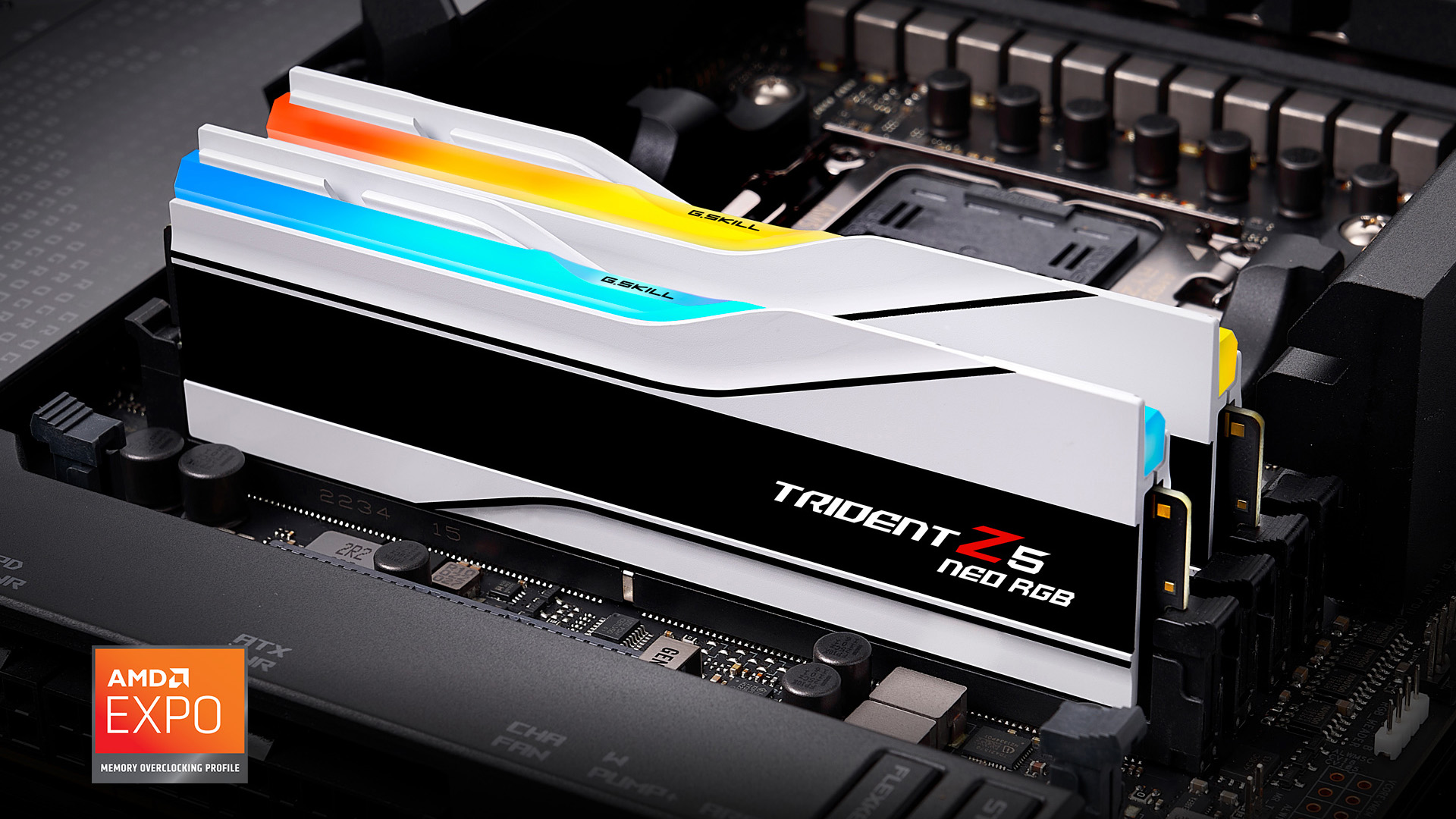MSI introduces Latency Killer to improve DDR5 latency on AM5 motherboards — feature reportedly reduces latency by up to 8ns
Latency Killer reduces latency to match previous AGESA microcode updates

MSI has seemingly introduced a new performance enhancer for its X870E motherboards, improving DDR5 memory latency. Uniko's Hardware on X found that the Latency Killer feature can reduce memory latency by up to 8ns.
This feature was introduced to combat purported memory latency degradation that started with AGESA 1.2.0.2a on AM5 motherboards—1.2.0.2a was the microcode update that added support for Ryzen 9000X3D CPUs. An AIDA64 benchmark run comparing the latency booster to default operating reveals an 8ns improvement in latency when turned on. This test was run on a Ryzen 7 9800X3D and an MPG X870E Carbon WiFi motherboard paired with DDR5-8000 CL38 memory running in combination with High-Efficiency mode tuned to the highest preset.
The new Latency Killer option can be found in the advanced menu section of MSI's latest MPG X870E Carbon WiFi BIOS in the overclocking submenu next to the High-Efficiency mode and FCLK frequency options. There are three options in total: Auto, Enabled, and Disabled. It is unknown what the auto setting defaults to, but presumably, it might be off by default to ensure stability.
The BIOS description for Latency Killer reads, "enhances latency performance but could potentially reduce CPU performance." So, while DDR5 latency improves, it could adversely affect CPU performance.
Contrary to its name, Latency Killer restores memory latency performance to what it was with previous AGESA updates rather than improving performance beyond what these updates have provided in the past or present. It remains unknown what Latency Killer does precisely to reduce latency, but these latency adjustments are generally made through memory controller optimizations.
Regardless, this latency degradation issue is purportedly going to be rectified in future AGESA microcode updates for AM5 motherboards.
Thankfully, 8ns of memory latency is not a huge deal, and most people will probably never notice such latency, even in games, especially with X3D-equipped Ryzen CPUs, which help hide memory latency with their massive 96MB L3 cache capacity. So, unless you're an extreme overclocker pushing for world records, the 8ns isn't something you'd worry about.
Get Tom's Hardware's best news and in-depth reviews, straight to your inbox.

Aaron Klotz is a contributing writer for Tom’s Hardware, covering news related to computer hardware such as CPUs, and graphics cards.
-
rluker5 8ns is a lot. I only get a bit over 10ns under XMP by tuning my Intel system.Reply
It is a shame that nearly everyone else who has a Ryzen has had their performance degraded like this.
Hopefully someone can figure out what MSI did so others can have their performance restored. -
thestryker 8ns is potentially a pretty big deal, but it also depends on when this additional latency occurs. If it's only when using mismatched clocks then it probably isn't relevant to the vast majority of AM5 users. This seems like something that might be worth investigating unless AMD themselves have already addressed it.Reply
I will say MSI has been making some pretty big strides on simplifying memory tweaking for both AMD and Intel lately. Makes me wonder if they're just diversifying or if they're going after Asus. -
nimbulan Reply
I'm pretty sure this is referring to overall memory latency that you see in memory benchmark tools, not just the "first word" latency on the memory spec. Overall latency will typically be around 60ms for highly tuned systems and probably up in the 80-90ms range otherwise so while the number isn't large, a potential >10% latency reduction is nothing to scoff at.rluker5 said:8ns is a lot. I only get a bit over 10ns under XMP by tuning my Intel system.
It is a shame that nearly everyone else who has a Ryzen has had their performance degraded like this.
Hopefully someone can figure out what MSI did so others can have their performance restored. -
sfjuocekr 8ns compared to what?Reply
There is nothing substantial in this whole article, just regurgitating some irrelevant information nobody can relate or compare to anything because you didn't understand the topic in the first place.
There are so many different latencies when it comes to memory, just saying "8ns" doesn't tell us anything... -
sfjuocekr Reply
ns = nano second.Amdlova said:Ms? Or ns? Lol
If memory was in the milliseconds, your PC would be unbelievably draggy... -
sfjuocekr Reply
You are multiple orders of magnitude off.nimbulan said:I'm pretty sure this is referring to overall memory latency that you see in memory benchmark tools, not just the "first word" latency on the memory spec. Overall latency will typically be around 60ms for highly tuned systems and probably up in the 80-90ms range otherwise so while the number isn't large, a potential >10% latency reduction is nothing to scoff at. -
das_stig Whatever MSI have done, I'm sure AMD and the other mobo makers will soon reverse engineer and copy, especially if just micro-code tuning.Reply